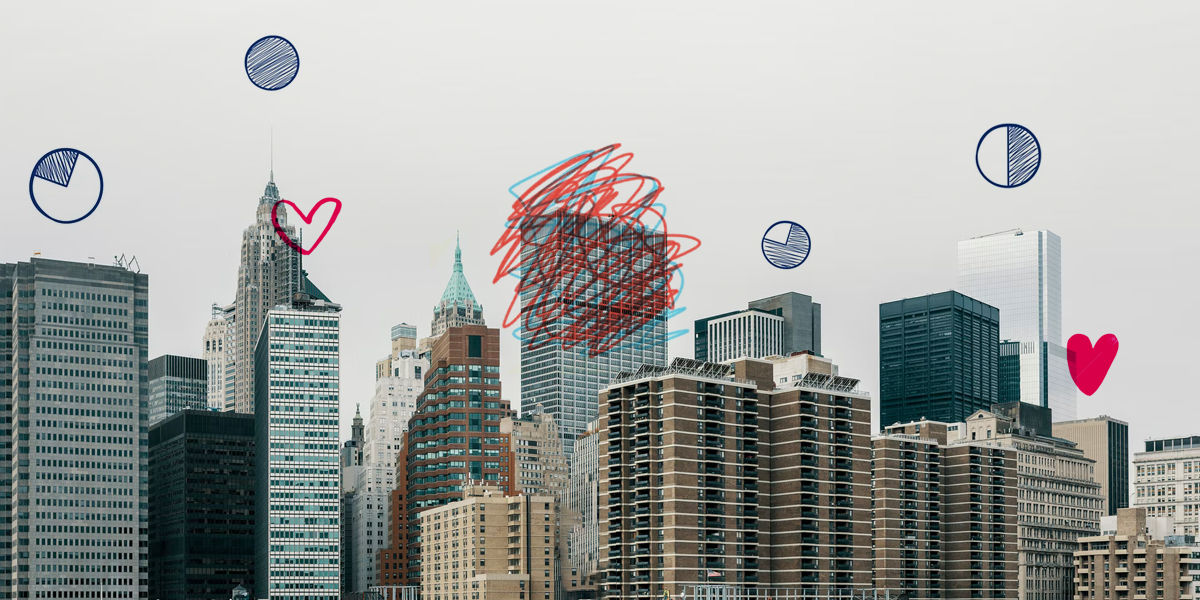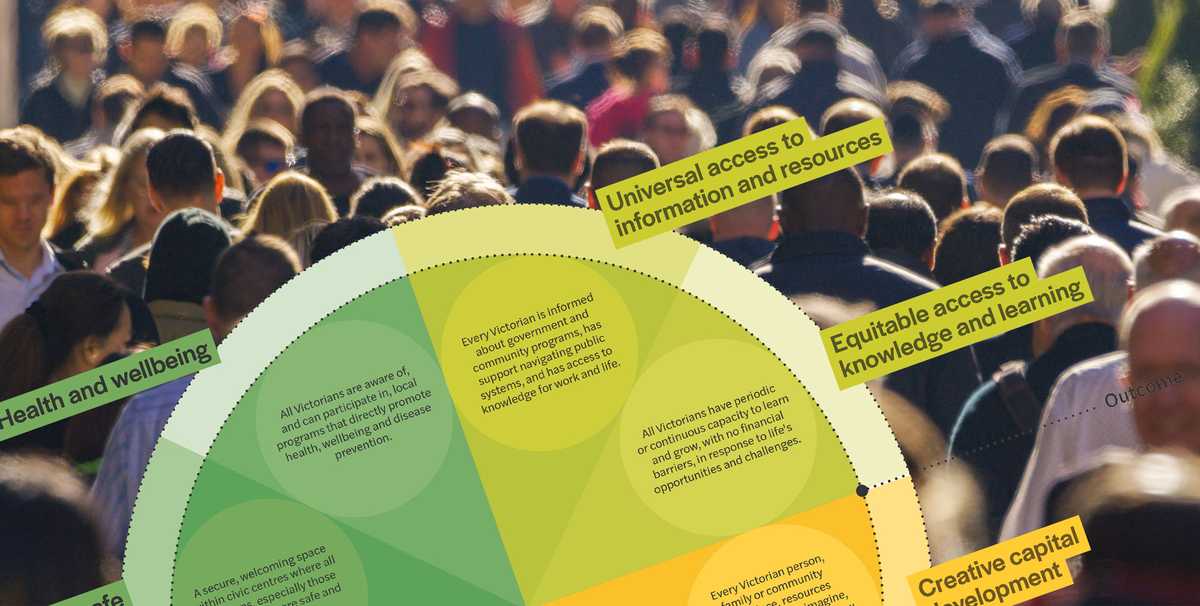
In year three of the pandemic, social impact has found different emphasis and, at home and at work, mainstream consciousness. So what are the social impact trends in 2022 that we should watch?
When historians reflect on the last few years, they will likely point to COVID-19 as the metaphorical mirror the world needed to understand how fragile our health and our economies are; how reliant society and the private sector are on governments; and how much we value community.
That mirror also revealed the scale of power and privilege asymmetries prevalent in global and Australian society. How we came together, but also how we were very much apart.
With people acutely aware of their own health and wellbeing, linked to financial security and sharp changes in our climate, ‘social impact’ has become a priority consideration in our decision-making: as employees, customers, voters and community members.
And people are getting warier and wiser.
Various reports and articles (such as this one from the Research in International Business and Finance journal) have identified the prevalence of greenwashing among corporations adopting the language of sustainable transition but providing scarce evidence, often not linked to other reporting, so net impact cannot be determined.
As a result, non-financial standards for reporting are maturing, providing more reliable destinations for companies seeking acceptable measures for auditing and reporting.
In 2020, the British Standards Institution, the national standards body of the UK, produced a world-first social value standard at the national level. In 2022, Australia will follow, releasing our take on the measurement of social impact with a specific focus on guiding decision-makers on the validity of their social impact measurement approaches.
So, with a more aware and informed public, and maturing systems and practice, we take a look at three key trend areas for social and environmental impact in 2022, and beyond.
1. Purpose must be felt equally.
We might think the pressing matters of dealing with a pandemic have made us less aware, but purpose is a major social impact trend in 2022, just as it was in previous years.
Business purpose is increasingly important to the Australian market. During COVID-19, Australians have had time to think more and change their consumption habits.
73% have admitted to reassessing the way they buy since the pandemic started (Capterra).
Consumers are acting on their values.
41% of Australians have said they will permanently stop buying from a business if they believed it had done something that wasn’t socially or environmentally responsible (EY).
These numbers are only going to increase as the world inches closer to social and environmental limits.
Behind the counter and in head office, employees are also considering their employment and careers.
The U.S. was hit first with the Great Resignation, with a record 4.4 million workers quitting their jobs in the month of September, 2021 (Statista).
Australia has followed a similar trajectory. Over 1 in 5 Australians have changed jobs in the past year.
Those that were fortunate enough to work throughout COVID-19 likely did so with increasingly blurred work-life balance, and mounting pressure to perform against tighter margins. Workers on the frontline experienced longer shifts, fewer breaks and the all-encompassing stress of COVID-19.
Keeping people employed or attracting new workers to meet growth opportunities is not only about providing financial benefits but demonstrating how the company vision matches employee career trajectory, purpose and desired culture.
Demonstrating to employees and customers that the company is heading in the right direction, is conscious of the impact it has on the world and is determined to make a difference — profitably — over time, is an expectation. To not be clear, is to stand out for the wrong reasons.
2. From footprint minimisation to climate positive.
The last decade has been marked by minimisation: carbon neutrality, cleaning up supply chains and reducing waste. Now leading companies are seeing climate change as a business opportunity.
As we face imminent existential social and environmental tipping points, we are learning that negating a problem is only the first step. Next comes creating value.
We are starting to see this in sustainability strategies, in which companies are no longer striving for carbon neutrality but documenting how they are carbon negative/positive.
Carbon negative/positive: two similar terms. It occurs when a company removes or captures more CO2 from the atmosphere than it emits. This means a company has a negative amount of emissions and/or is positively impacting the climate.
This approach is also evidenced in social impact domains. Standards Australia’s soon-to-be-released guide on measuring social value will attempt to create a standardised approach to measuring and defining an organisation’s impact on the community.
The goal of more robust social value measurement is to create targeted and wider benefits.
Seeing beyond harm minimisation, organisations are using shared value thinking to guide and operationalise social and environmental impact. The goal is to understand how the unique ability of a company to address climate and social change can support growth — and financial as well as environmental sustainability.
Ellis Jones achieved carbon neutrality last year, and we are working on a project that will demonstrate that even a consulting business in the back streets of inner Melbourne can have a net positive impact on the environment. Our focus is biodiversity.
A pervasive consideration is mental health. After years of unquantified pandemic-related health and wellbeing impacts, the best organisations are making positive mental health core business strategy. The beneficiaries are employees, customers and communities.
3. Redefining ‘think global, act local’.
As COVID-19 has repeatedly demonstrated, we are too reliant on global supply chains and sovereign protectionism. In Australia, we’ve seen policy walls erected between states lead to smaller-scale supply barriers and cultural division.
We increasingly ask the question, ‘why can’t we make, grow and buy these things here’. How might we respond?
Circularity, pivoting markets and redefining value are a good start.
We need to challenge the concept of ‘waste’. Everything we produce should be able to make its way into a circular system and find the same or a new utility. While policy provides longer-term horizons, Australian designers, engineers and manufacturers are getting on with the job, innovating to solve the waste problem, creating income and jobs, in years not decades.
For inspiration, see what Yarra Valley Water is doing. We’ve been helping their team on the next stage, a fully circular community. News on that coming soon.
During the pandemic, China shut its doors on whole industries; but, surprisingly quickly, those high-value, trusted Australian resources and produce found a new home. There was pain; but also, validation and opportunity.
Over the past 50 years, the extremes of capitalism forced us to divide the citizen and consumer in ourselves. We want workers to be supported with good local jobs, and have access to the full range of health and social services. We also want the cheapest products we can get, no matter where they are from or the conditions they are produced in. A dichotomy that, if we are honest, never made sense.
We have been paying too little, for too little quality for too long. But during the pandemic, we have been presented with Australian alternatives to cheap imports that may cost more but have quality and other important value — like creating jobs for our mates who may otherwise be fighting to support their families. We have been encouraged to question the origin of what we buy and the regimes that stand behind them.
We have started to think more about our choices, and the impact they have.
If you want to understand the trends affecting business, society and people living in communities across Australia, then we can offer good company.
We’ve spent the last few months mapping the social, political, economic and environmental forces influencing the decisions of everyday Australians. And we’d love to share what we know.

